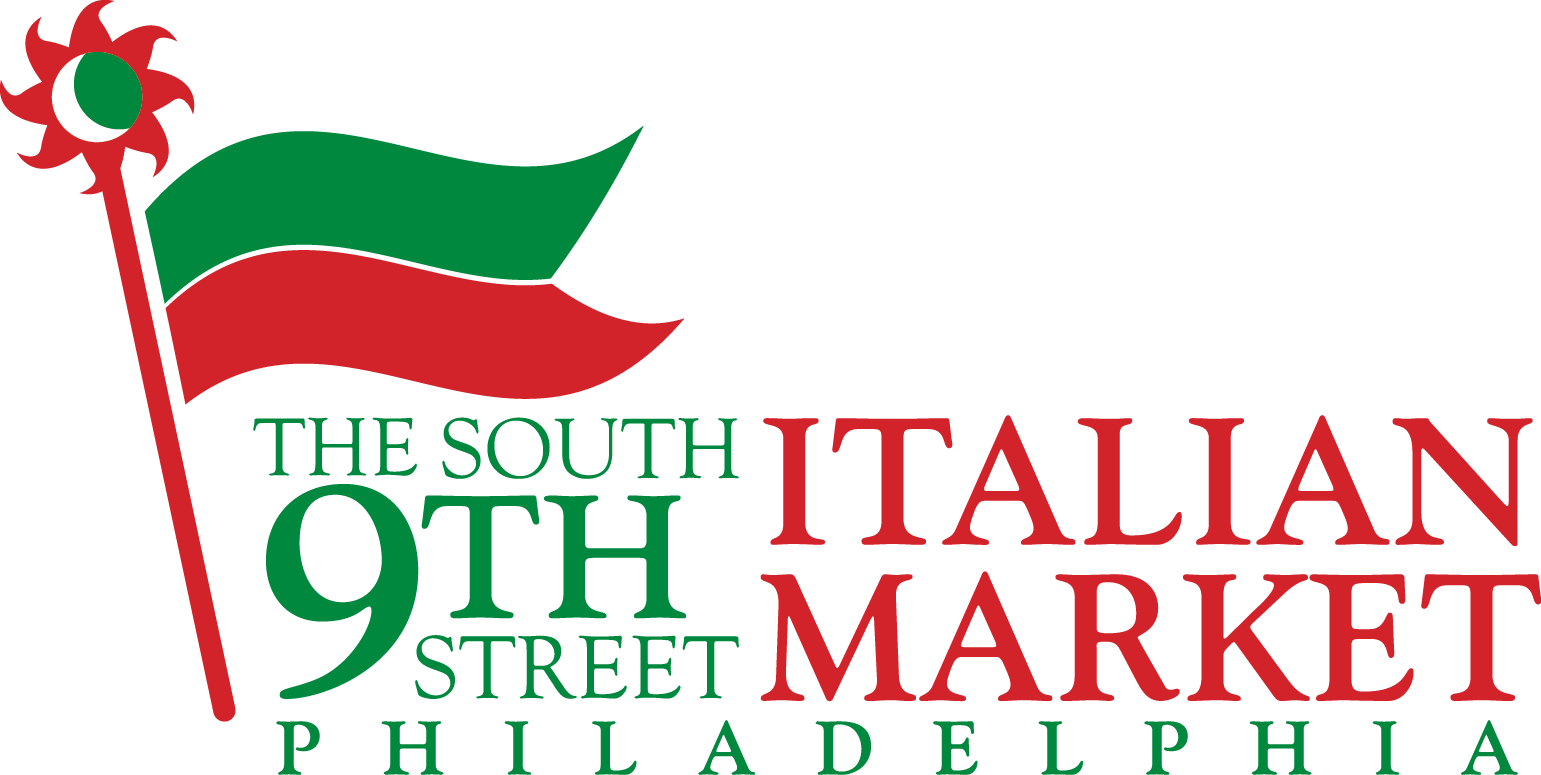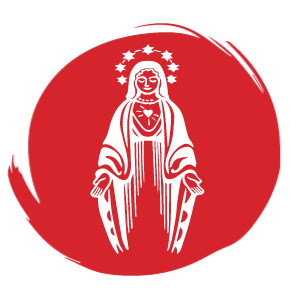Procession of Saints
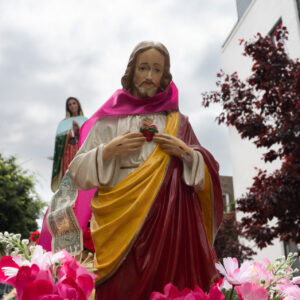
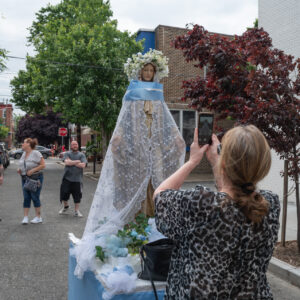
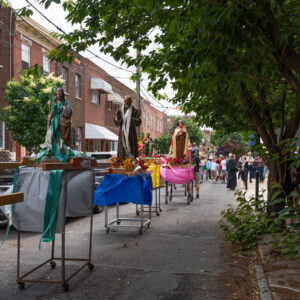
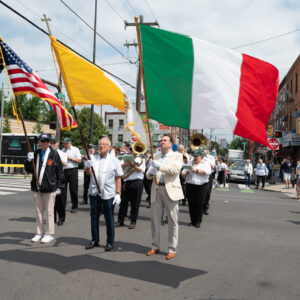
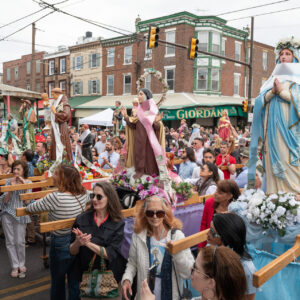
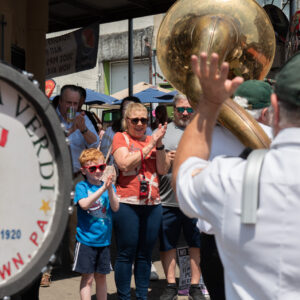
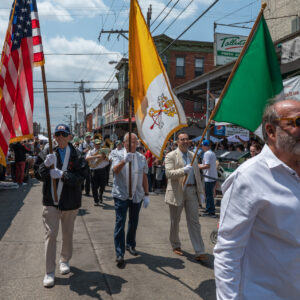
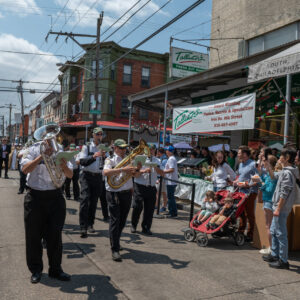
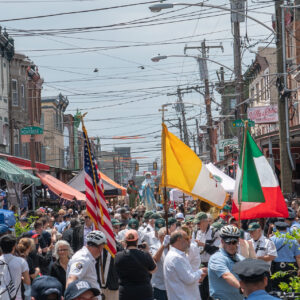
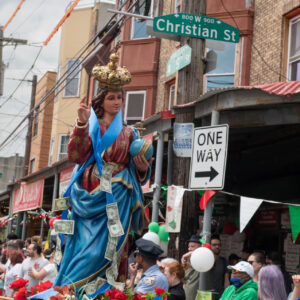
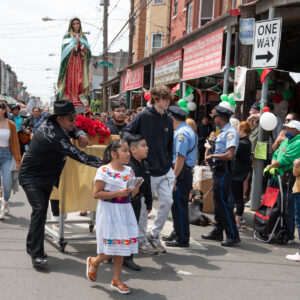
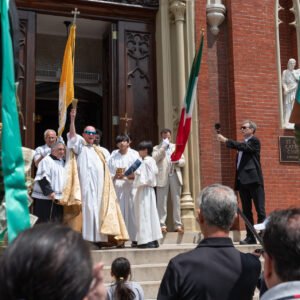
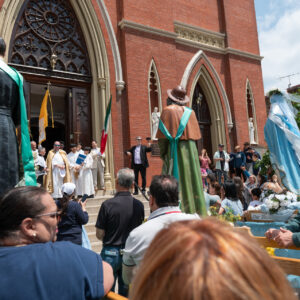
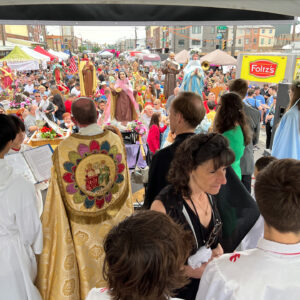
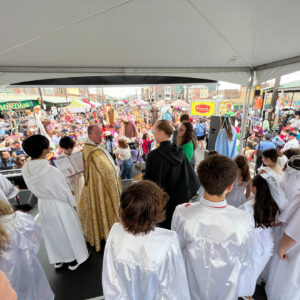
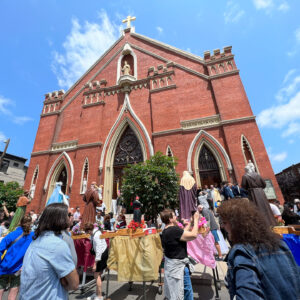
The Procession of Saints starts at the historic Saint Mary Magdalen de’ Pazzi Church located at 712 Montrose St. at 11am, Sunday May 19th.
Pausing for the Blessing of the Market at 9th and Washington, the procession then proceeds along S. 9th to Christian Street, and concludes at St. Paul Catholic Church (808 S. Hutchinson, on Christian St. between 9th & 10th).
An Italian Market Tradition
St. Mary Magdalen, the first Catholic Italian parish in the United States, was established in 1852 by Bishop John Neumann to meet the spiritual needs of Philadelphia’s Italian immigrant community. It also met their social needs with its orphanage and school, and its Procession of Saints was an important celebration that brought everyone together. The procession from Saint Mary Magdalen de’ Pazzi Church is known to have existed since at least the 1920’s, and continues annually to this day with St. Paul’s parish.
Historically, processions have long been part of cultural and religious traditions, to serve as public manifestations and reminders of communal solidarity, and they were often held to mark special events. During the latter part of the 18th century, statues of holy people were becoming integral parts of Catholic processions.
As part of the great church art movement that started in the Middle Ages, sculptures memorialized holy people and their works. Saints and other holy people were often adopted as patrons within parishes or communities for the common qualities they shared, such as a trade or vocation, and their statues acted as reminders of the morals and beliefs that they valued.
The pinning of money to ribbons dangling from the statues seems to have origins in the practice of many new immigrants, who, to be remembered and as a declaration of their newfound prosperity, sent money back home to be visibly displayed on the statue of the community’s patron Saint, in the church and in processions. Today, many devotees simply make a prayer and pin money as an offering in support of the religious institution that is fostering their spiritual belief and needs.
The procession pauses from time to time to give blessings by sprinkling Holy Water, a ritual tradition for expiatory and purificatory purposes attributed to the Apostle St. Matthew, which recalls the baptismal rite that spiritually bound the community together.
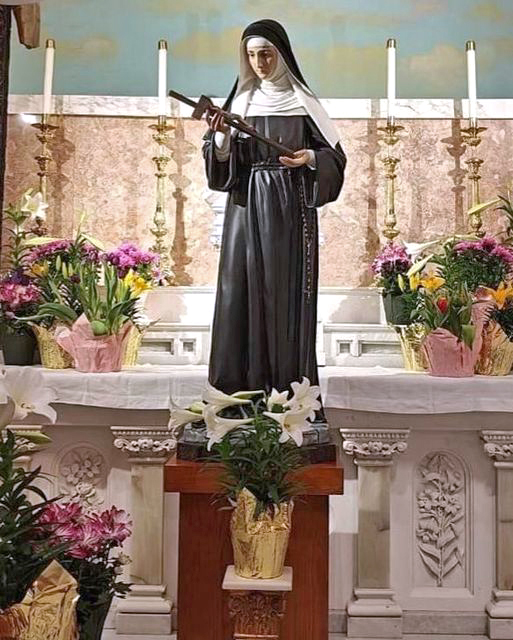
Welcome St. Rita of Cascia
Saint Paul and Saint Mary Magdalen de Pazzi have added another saint to the Procession of Saints taking place on Sunday May 19 at the S. 9th Street Festival. We are proud to announce the addition of Saint Rita of Cascia. Saint Rita is the patron saint of the impossible, as well as difficult marriages and parenthood. After the death of her husband and her two sons, she became an Augustinian Nun which was her lifelong dream. She died in 1457. Her incorrupt body is found at the Shrine of St. Rita in Cascia Italy.
